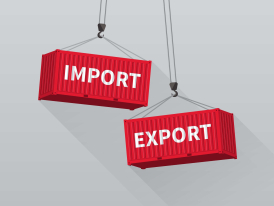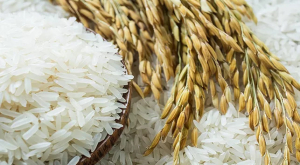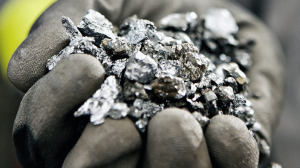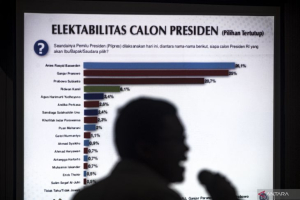Indonesia eyes for negotiation, strategic adjustments against U.S. import tariff hike
Indonesia is preparing an official response to the United States' recent tariff hikes, with a focus on negotiations and strategic policy adjustments, Coordinating Minister for the Economy Airlangga Hartarto announced on Monday, April 7, 2025.
Since April 5, the U.S. has imposed a 10-percent tariff on Indonesian exports, with an additional 32 percent set to take effect on April 9. Other ASEAN nations, including Vietnam, Cambodia, and Thailand, face even higher tariff rates, while Malaysia, the Philippines, and Singapore encounter lower duties. Indonesia’s food and textile industries are expected to bear the most significant impact, as these sectors are key export drivers.
Speaking to the media after a coordination meeting with over 100 business associations on Monday, Airlangga emphasized that Indonesia sees opportunities amid these challenges.
“Major competitors such as China, Bangladesh, Vietnam, and Cambodia are also affected by the U.S. tariff policy, which may open market gaps that Indonesia can fill,” Airlangga told the media.
The Indonesian Embassy in Washington has engaged with the United States Trade Representative (USTR), which awaits Indonesia’s formal proposal. Meanwhile, coordination efforts have been initiated by President Prabowo Subianto and Malaysian Prime Minister Anwar Ibrahim.
ASEAN, as a bloc, has opted for negotiations over retaliatory measures. Vietnam has reduced its tariffs to 0 percent, while Malaysia, Cambodia, and Thailand have pursued similar policies. Indonesia and Malaysia are pushing to update the Trade and Investment Framework Agreement (TIFA), originally signed in 1996, to reflect current economic conditions.
As part of its negotiation strategy, Indonesia is considering non-tariff measures and increased imports of key U.S. commodities such as wheat, cotton, and oil and gas, which could help narrow the US$18 billion trade deficit. Additionally, Indonesia’s national strategic projects, including oil refinery development, may source components from the U.S.
Indonesia will also adjust policies in industries where it holds bargaining power, such as electronics, footwear, furniture, semiconductors, as well as copper and gold exports.
“We are working to ensure that Indonesia maintains its competitiveness while seeking a constructive resolution with the U.S.,” Airlangga said.
Syafruddin Karimi of the Department of Economics at Padang-based Andalas University, said this approach is essential for maintaining economic stability amid global pressure.
“Rather than escalating tensions, Indonesia is leveraging economic diplomacy to safeguard national interests intelligently and strategically,” Karimi said.
Despite the challenges, Indonesia is seizing the crisis as an opportunity to diversify export markets, attract foreign investment, and strengthen its position in global supply chains. The country’s response underscores a commitment to resilience and strategic economic maneuvering in the face of external shocks.
Trump's policy shakes global markets
Anthony Budiawan, Managing Director at Political Economy and Policy Studies (PEPS), argues that Trump's decision is not impulsive, but rather a well-planned strategy based on long-standing beliefs about unfair trade practices.
“Trump has always maintained that global trade has been unfair to the U.S., causing persistent trade deficits,” Budiawan said.
Trump’s trade philosophy dates back to at least 1988, when he told Oprah Winfrey that America’s trade deficit was unsustainable. At the time, he singled out Japan as a country that benefited from access to the U.S. market while making it difficult for American exports to enter its own.
“I’d make our allies pay their fair share,” Trump said in the 1988 interview, which has recently resurfaced online.
The reciprocal tariff policy challenges nations to lower their import tariffs on U.S. goods or face higher levies on their exports to America. Vietnam has already responded by agreeing to slash tariffs on U.S. products to zero, a move Trump’s administration welcomes.
Elon Musk, a key figure in Trump’s government and head of the Department of Government Efficiency (Doge), has called on Europe to follow suit.
“The U.S. and Europe could move towards a ‘zero-tariff situation,’ creating a free-trade zone between North America and Europe,” Musk proposed.
Budiawan contends that Trump’s policy is not about protectionism or hostility toward China, but about ensuring fairness in global trade.
“This is not about shielding U.S. industries but about pushing for a level playing field,” he emphasized.
Global markets are in turmoil following the implementation of President Donald Trump’s reciprocal import tariff policy on April 2. Stock markets worldwide have plummeted, with Japan’s Nikkei dropping 8 percent and Hong Kong’s Hang Seng plunging 10 percent as of Monday, April 7, 2025.
The policy, which Trump describes as an "economic revolution," has drawn widespread criticism, with many world leaders condemning it as a reckless move that could push the global economy into recession. However, Trump remains steadfast, asserting that the U.S. will emerge victorious.
“Hang tough, it won’t be easy, but the end result will be historic,” Trump said on Truth Social platform.
Already have an account? Sign In
-
Start reading
Freemium
-
Monthly Subscription
20% OFF$29.75
$37.19/MonthCancel anytime
This offer is open to all new subscribers!
Subscribe now -
Yearly Subscription
33% OFF$228.13
$340.5/YearCancel anytime
This offer is open to all new subscribers!
Subscribe now







